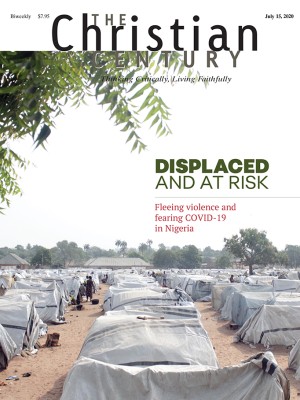
In The Mirror and the Light, the final volume of her magnificent trilogy on the career of Henry VIII’s senior counselor Thomas Cromwell, Hilary Mantel describes her protagonist’s sense of his own mortality in three stages. One is perpetual: he witnesses the fall and rise of many in England and is responsible for a good few; he knows, especially as the son of a lowly blacksmith, how fragile is his exalted status, so dependent on the whim of the king and the mercurial turn of political and personal events. The second is shocking: within a couple of months of being elevated to the earldom of Essex, apparently near the pinnacle of the aristocracy, he’s toppled by a change in Henry’s heart, coupled with the conniving of his enemies and of some he’d considered friends; he’s sent to the Tower of London, to await execution for treason. The third is almost unbearable, as the last pages of the novel describe his final minutes as he kneels to suffer the ax.
Not everyone meets their end in these three distinct stages. But what delineating these stages makes possible is finding a way to become as ready as we could ever be to meet our Maker. Each stage has its particular qualities and opportunities. But the aim, briefly put, is to be so much at peace with one’s neighbor and oneself that when the moment comes one is ready to be with God.
Read our latest issue or browse back issues.
The first stage, when one becomes aware of one’s mortality, is the moment to make peace with one’s neighbor. Of course we’re all dying, from the moment we’re born, so this could be anytime—but there’s nothing like a diagnosis to concentrate the mind. This stage is about being transformed from a burden to a blessing. This is the season for putting one’s financial affairs in order, writing a will, deciding who should receive mementoes and legacies, and not leaving a mess for someone else to clean up.
That’s not just a financial mess. It can be a physical mess, in the shape of documents, possessions, and clothes; of projects that are in no order, have no identified destiny, and are symbols of a tomorrow that will never come. It can, most damagingly, be an emotional mess, in words left unsaid, apologies unspoken, enmity unresolved, sins unrepented, wounds unhealed. It’s about being a grownup: not leaving a trail of wreckage for some unnamed person to resolve after you’ve gone. How can my death be a blessing to others? Should I donate my organs? Might I write a letter to be opened on a descendant’s 18th birthday? Could I find words to tell my brother that I know I hurt him and it was due to my failure to know how to love him well? We could call this stage the forgiveness of sins.
The second stage, when it becomes clear this is now a question of days or weeks, is the moment to make peace with oneself. This stage is about transforming death from a curse to a gift. It’s too late to do almost all the things that belong in stage one. It’s unwise to crowd your life now with final words with all the neighbors you wish to thank or forgive. There are many things you’re never going to do. It’s time to let go of them. A longer life would simply have left a different list of unfinished business—or the same list, with fewer excuses.
Write your own obituary, reflecting not just on the short or long list of achievements but on the things left unsaid: none of these will last forever, whether commendable or deplorable. Contemplate those last two paragraphs, to which most readers skip, which say, “Above all, she was always . . .” Forget the accomplishments and failures. Just concentrate on being those last two paragraphs. It’s too late to change them now.
Love is strong as death. Let God fill your heart with love, just as fast as your body is filling with death. You have been given the astonishing gift of life. You didn’t ask for it; you seldom questioned it; it was never yours to cling to or feel entitled to. Now it’s being taken away. Who’s to say the one who gave you this life hasn’t got an even better one in store for you? Stop trying to hold onto life so tight no one can take it away from you. We could call this stage the life everlasting.
The third stage, when there are mere hours left, is about making peace with God. This is the moment to turn death from the great betrayal to the epitome of trust. The phrase that marks this transition is “handed over.” Betrayal is handed over into harm. Trust is handed over into safety. And here’s the key: if you’ve done the hard work at stages one and two, this one’s the easy bit. In fact, our whole lives are a preparation for this moment. It’s time for God to take our body and give us a new one.
The pursuit of sanctity is the quest to save God the trouble—to make each aspect of our lives transparent with God’s grace so there’s little transformation to be done after our death. “Set me as a seal upon your heart” is all there’s left to say. We could call this stage the resurrection of the body.
Only one thing witnesses to the truth of the gospel more than a good life. And that’s a good death.
A version of this article appears in the print edition under the title “Mortality in stages.”







